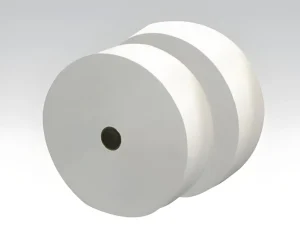
Introduction
Definition of Electrical Insulation Materials
Electrical insulation materials prevent electric current flow between conductive parts and protect against electrical hazards. Moreover, they possess high dielectric strength and resistivity, enduring electrical stress to maintain effective insulation in systems.
Importance of Electrical Insulation in Electrical Systems
Electrical insulation is crucial for the safe and reliable operation of electrical systems. It prevents electrical leakage, short circuits, and electrical shocks. Consequently, it reduces the risk of equipment damage, fires, and personal injury. Additionally, effective insulation ensures the efficient transmission and distribution of electrical energy. This reduces energy losses and optimizes system performance. In summary, electrical insulation is indispensable for maintaining the integrity, safety, and efficiency of electrical systems across various industries and applications.
Solid Insulation Materials
PVC (Polyvinyl Chloride): PVC is a commonly used solid insulation material known for its excellent electrical insulation properties, chemical resistance, and affordability. It is widely used in cables, wires, and electrical devices for insulation and sheathing.
PE (Polyethylene): PE is another solid insulation material that offers good dielectric strength and flexibility. It is used in various electrical applications, including wire insulation, cable jackets, and electrical conduit, due to its durability and ease of processing.
XLPE (Cross-linked Polyethylene): XLPE is a specialized form of polyethylene with cross-linking that enhances its thermal and mechanical properties. XLPE is widely used in high-voltage cables and power distribution systems due to its excellent electrical performance and resistance to environmental stress.
Liquid Insulation Materials
Transformer Oil: Transformer oil, also known as mineral oil, is a common liquid insulation material used in transformers and high-voltage equipment. It provides effective insulation and cooling, as well as protection against arcing and corona discharge.
Silicone Oil: Silicone oil is a synthetic liquid insulation material with high thermal stability and dielectric strength. It is used in high-temperature applications, such as electrical heating systems and high-voltage capacitors, due to its excellent heat resistance and electrical properties.
Mineral Oil: Mineral oil is a traditional liquid insulation material derived from petroleum. It is commonly used in electrical transformers and switchgear for insulation and cooling purposes, offering good dielectric properties and thermal conductivity.
Composite Insulation Materials
Epoxy Resin: Epoxy resin is a versatile composite insulation material. It is known for its high mechanical strength and chemical resistance. Additionally, it offers excellent adhesion properties. Epoxy resin is used for encapsulation, potting, and coating of electrical components. This provides insulation and protection against moisture and environmental contaminants.
Polyurethane Foam: Polyurethane foam is a lightweight and flexible composite insulation material. It is used for both thermal and acoustic insulation in electrical enclosures and cabinets. This foam provides effective insulation while also offering cushioning and vibration damping properties.
Glass Epoxy Laminate: Glass epoxy laminate, also known as FR-4, is a composite material. It consists of woven glass fabric impregnated with epoxy resin. This material is widely used as a substrate for printed circuit boards (PCBs) and electrical insulators. It is valued for its high mechanical strength, dimensional stability, and excellent electrical insulation properties.
Properties and Characteristics of Electrical Insulation Materials
Dielectric Strength
Electrical insulation materials vary in dielectric strength, determining their capacity to endure electrical stress without succumbing to breakdown, thus ensuring the sustained integrity of electrical systems.
Thermal Stability
Thermal stability indicates the ability of an insulation material to withstand elevated temperatures without degradation. Insulation materials must maintain their electrical and mechanical properties over a wide temperature range to ensure long-term performance and reliability in demanding applications.
Chemical Resistance
Chemical resistance is crucial for insulation materials exposed to harsh environmental conditions or chemical substances. Insulation materials should resist degradation from oils, solvents, acids, and other chemicals to maintain their integrity and insulation properties over time.
Mechanical Strength
Mechanical strength refers to an insulation material’s ability to withstand mechanical stress. This includes bending, stretching, or compression without deformation or damage. Consequently, high mechanical strength is essential for ensuring the durability of insulation materials. Additionally, it plays a crucial role in the reliability of insulation materials in electrical systems. Therefore, materials with high mechanical strength are vital for maintaining effective insulation over time.
Applications of Electrical Insulation Materials
Power Cables and Wires
Electrical insulation materials extensively serve in power cables and wires, offering insulation between conductors and shielding against electrical hazards. These materials are prevalent in transmission and distribution networks, building wiring, and electrical appliances.
Transformers and Switchgear
Insulation materials play a vital role in transformers and switchgear, providing electrical insulation between windings, coils, and core components. Commonly used to ensure reliability and performance of these electrical devices are transformer oil, solid insulation materials, and composite insulation systems.
Motors and Generators
Insulation materials are vital in motors and generators by insulating winding coils, rotor bars, and stator cores, thus preventing electrical shorts and enhancing efficiency. Proper insulation guarantees the reliable operation and longevity of motors and generators across various industrial and commercial applications.
Printed Circuit Boards (PCBs)
Electrical insulation materials, such as epoxy resins and glass epoxy laminates, are used in the manufacture of printed circuit boards (PCBs) to insulate conductive traces and components. Insulated PCBs are essential for electronic devices and systems, providing electrical connectivity while preventing short circuits and electrical interference.